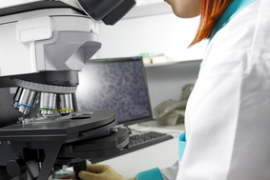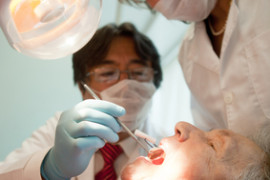The periodontal bacterium P. gingivalis substantially increases orodigestive cancer mortality, according to a study in Carcinogenesis.
In a study of 12,605 individuals over the course of six years, researchers found that risk of mortality from orodigestive cancers—which include cancers of the mouth, esophagus, stomach, colon, and pancreas—was correlated with the severity of periodontitis. As the periodontitis worsened, mortality increased.
Most importantly, researchers found that this increased risk of mortality was not just related to periodontitis, but to periodontal pathogen Porphyromonas gingivalis:
“Orodigestive cancer mortality is related to periodontitis and to the periodontal pathogen, P. gingivalis, independent of periodontal disease.”
As we now know, it is possible to have high levels of harmful pathogens without the traditional visual signs of periodontal disease. The study shows that even if you don’t have deep pockets or bleeding gums, the presence of P. gingivalis increases orodigestive cancer mortality.
Researchers concluded that P. gingivalis is a biomarker for “microbe-associated risk of death due to orodigestive cancer.” The fact that these researchers are calling this increased mortality risk “microbe-associated risk of death” is highly significant for the oral-systemic health movement: it shows that the evidence of thousands of research projects demonstrating the virulence of oral pathogens is being taken as a serious and significant health risk, especially in conjunction with other diseases.
The fact is it’s nearly impossible to find a condition that is NOT associated with periodontal bacteria is a clear indication of substantial impact these pathogens can have on our health, quality of life, and healthcare costs.



